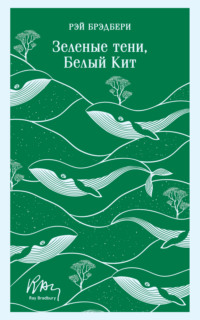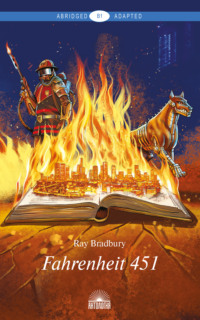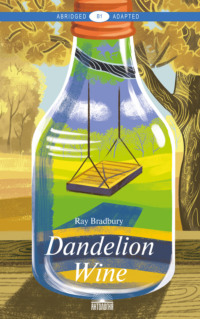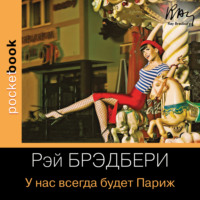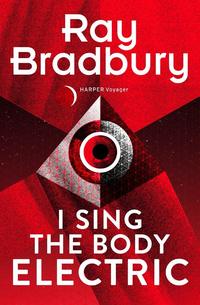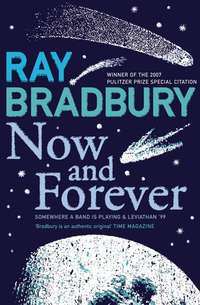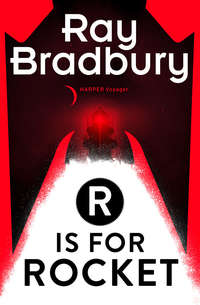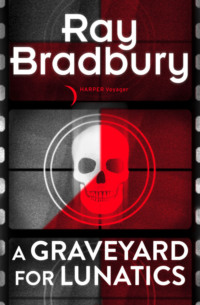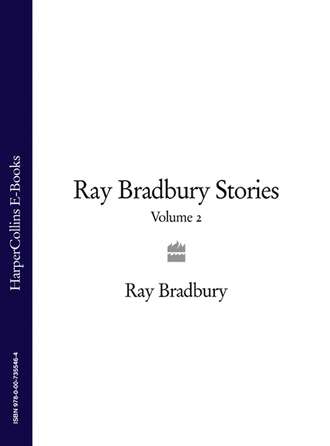
Полная версия
Ray Bradbury Stories Volume 2
‘Our age?’
‘Yes. Once I was a pretty little girl just like you, Jane, and you, Alice.’
They did not speak.
‘What’s the matter?’
‘Nothing.’ Jane got up.
‘Oh, you don’t have to go so soon, I hope. You haven’t finished eating.… Is something the matter?’
‘My mother says it isn’t nice to fib,’ said Jane.
‘Of course it isn’t. It’s very bad,’ agreed Mrs Bentley.
‘And not to listen to fibs.’
‘Who was fibbing to you, Jane?’
Jane looked at her and then glanced nervously away. ‘You were.’
‘I?’ Mrs Bentley laughed and put her withered claw to her small bosom. ‘About what?’
‘About your age. About being a little girl.’
Mrs Bentley stiffened. ‘But I was, many years ago, a little girl just like you.’
‘Come on, Alice, Tom.’
‘Just a moment,’ said Mrs Bentley. ‘Don’t you believe me?’
‘I don’t know,’ said Jane. ‘No.’
‘But how ridiculous! It’s perfectly obvious. Everyone was young once!’
‘Not you,’ whispered Jane, eyes down, almost to herself. Her empty ice stick had fallen in a vanilla puddle on the porch floor.
‘But of course I was eight, nine, ten years old, like all of you.’
The two girls gave a short, quickly-sealed-up laugh.
Mrs Bentley’s eyes glittered. ‘Well, I can’t waste a morning arguing with ten-year-olds. Needless to say, I was ten myself once and just as silly.’
The two girls laughed. Tom looked uneasy.
‘You’re joking with us,’ giggled Jane. ‘You weren’t really ten ever, were you, Mrs Bentley?’
‘You run on home!’ the woman cried suddenly, for she could not stand their eyes. ‘I won’t have you laughing.’
‘And your name’s not really Helen?’
‘Of course it’s Helen!’
‘Good-bye,’ said the two girls, giggling away across the lawn under the seas of shade, Tom followed them slowly. ‘Thanks for the ice cream!’
‘Once I played hopscotch!’ Mrs Bentley cried after them, but they were gone.
Mrs Bentley spent the rest of the day slamming teakettles about, loudly preparing a meager lunch, and from time to time going to the front door, hoping to catch those insolent fiends on their laughing excursions through the late day. But if they had appeared, what could she say to them, why should she worry about them?
‘The idea!’ said Mrs Bentley to her dainty, rose-clustered teacup. ‘No one ever doubted I was a girl before. What a silly, horrible thing to do. I don’t mind being old – not really – but I do resent having my childhood taken away from me.’
She could see the children racing off under the cavernous trees with her youth in their frosty fingers, invisible as air.
After supper, for no reason at all, with a senseless certainty of motion, she watched her own hands, like a pair of ghostly gloves at a séance, gather together certain items in a perfumed kerchief. Then she went to her front porch and stood there stiffly for half an hour.
As suddenly as night birds the children flew by, and Mrs Bentley’s voice brought them to a fluttering rest.
‘Yes, Mrs Bentley?’
‘Come up on this porch!’ she commanded them, and the girls climbed the steps, Tom trailing after.
‘Yes, Mrs Bentley?’ They thumped the ‘Mrs’ like a bass piano chord, extra heavily, as if that were her first name.
‘I’ve some treasures to show you.’ She opened the perfumed kerchief and peered into it as if she herself might be surprised. She drew forth a hair comb, very small and delicate, its rim twinkling with rhinestones.
‘I wore this when I was nine,’ she said.
Jane turned it in her hand and said, ‘How nice.’
‘Let’s see!’ cried Alice.
‘And here is a tiny ring I wore when I was eight,’ said Mrs Bentley. ‘It doesn’t fit my finger now. You look through it and see the Tower of Pisa ready to fall.’
‘Let’s see it lean!’ The girls passed it back and forth between them until Jane fitted it to her hand. ‘Why, it’s just my size!’ she exclaimed.
‘And the comb fits my head!’ gasped Alice.
Mrs Bentley produced some jackstones. ‘Here,’ she said. ‘I once played with these.’
She threw them. They made a constellation on the porch.
‘And here!’ In triumph she flashed her trump card, a postal picture of herself when she was seven years old, in a dress like a yellow butterfly, with her golden curls and blown blue-glass eyes and angelic pouting lips.
‘Who’s this little girl?’ asked Jane.
‘It’s me!’
The two girls held onto it.
‘But it doesn’t look like you,’ said Jane simply. ‘Anybody could get a picture like this, somewhere.’
They looked at her for a long moment.
‘Any more pictures, Mrs Bentley?’ asked Alice. ‘Of you, later? You got a picture of you at fifteen, and one at twenty, and one at forty and fifty?’
The girls chortled.
‘I don’t have to show you anything!’ said Mrs Bentley.
‘Then we don’t have to believe you,’ replied Jane.
‘But this picture proves I was young!’
‘That’s some other little girl, like us. You borrowed it.’
‘I was married!’
‘Where’s Mr Bentley?’
‘He’s been gone a long time. If he were here, he’d tell you how young and pretty I was when I was twenty-two.’
‘But he’s not here and he can’t tell, so what does that prove?’
‘I have a marriage certificate.’
‘You could have borrowed that, too. Only way I’ll believe you were ever young’—Jane shut her eyes to emphasize how sure she was of herself—‘is if you have someone say they saw you when you were ten.’
‘Thousands of people saw me but they’re dead, you little fool—or ill, in other towns. I don’t know a soul here, just moved here a few years ago, so no one saw me young.’
‘Well, there you are!’ Jane blinked at her companions. ‘Nobody saw her!’
‘Listen!’ Mrs Bentley seized the girl’s wrist. ‘You must take these things on faith. Someday you’ll be as old as I. People will say the same. “Oh, no,” they’ll say, “those vultures were never hummingbirds, those owls were never orioles, those parrots were never bluebirds!” One day you’ll be like me!’
‘No, we won’t!’ said the girls. ‘Will we?’ they asked one another.
‘Wait and see!’ said Mrs Bentley.
And to herself she thought, Oh, God, children are children, old women are old women, and nothing in between. They can’t imagine a change they can’t see.
‘Your mother,’ she said to Jane. ‘Haven’t you noticed, over the years, the change?’
‘No,’ said Jane. ‘She’s always the same.’
And that was true. You lived with people every day and they never altered a degree. It was only when people had been off on a long trip, for years, that they shocked you. And she felt like a woman who has been on a roaring black train for seventy-two years, landing at last upon the rail platform and everyone crying: ‘Helen Bentley, is that you?’
‘I guess we better go home,’ said Jane. ‘Thanks for the ring. It just fits me.’
‘Thanks for the comb. It’s fine.’
‘Thanks for the picture of the little girl.’
‘Come back – you can’t have those!’ Mrs Bentley shouted as they raced down the steps. ‘They’re mine!’
‘Don’t!’ said Tom, following the girls. ‘Give them back!’
‘No, she stole them! They belonged to some other little girl. She stole them. Thanks!’ cried Alice.
So no matter how she called after them, the girls were gone, like moths through darkness.
‘I’m sorry,’ said Tom, on the lawn, looking up at Mrs Bentley. He went away.
They took my ring and my comb and my picture, thought Mrs Bentley, trembling there on the steps. Oh, I’m empty, empty; it’s part of my life.
She lay awake for many hours into the night, among her trunks and trinkets. She glanced over at the neat stacks of materials and toys and opera plumes and said, aloud, ‘Does it really belong to me?’
Or was it the elaborate trick of an old lady convincing herself that she had a past? After all, once a time was over, it was done. You were always in the present. She may have been a girl once, but was not now. Her childhood was gone and nothing could fetch it back.
A night wind blew in the room. The white curtain fluttered against a dark cane, which had leaned against the wall near the other bric-a-brac for many years. The cane trembled and fell out into a patch of moonlight, with a soft thud. Its gold ferrule glittered. It was her husband’s opera cane. It seemed as if he were pointing it at her, as he often had, using his soft, sad, reasonable voice when they, upon rare occasions, disagreed.
‘Those children are right,’ he would have said. ‘They stole nothing from you, my dear. These things don’t belong to you here, you now. They belonged to her, that other you, so long ago.’
Oh, thought Mrs Bentley. And then, as though an ancient phonograph record had been set hissing under a steel needle, she remembered a conversation she had once had with Mr Bentley – Mr Bentley, so prim, a pink carnation in his whisk-broomed lapel, saying, ‘My dear, you never will understand time, will you? You’re always trying to be the things you were, instead of the person you are tonight. Why do you save those ticket stubs and theater programs? They’ll only hurt you later. Throw them away, my dear.’
But Mrs Bentley had stubbornly kept them.
‘It won’t work,’ Mr Bentley continued, sipping his tea. ‘No matter how hard you try to be what you once were you can only be what you are here and now. Time hypnotizes. When you’re nine, you think you’ve always been nine years old and will always be. When you’re thirty, it seems you’ve always been balanced there on that bright rim of middle life. And then when you turn seventy, you are always and forever seventy. You’re in the present, you’re trapped in a young now or an old now, but there is no other now to be seen.’
It had been one of the few, but gentle, disputes of their quiet marriage. He had never approved of her bric-a-brackery. ‘Be what you are, bury what you are not,’ he had said. ‘Ticket stubs are trickery. Saving things is a magic trick, with mirrors.’
If he were alive tonight, what would he say?
‘You’re saving cocoons.’ That’s what he’d say. ‘Corsets, in a way, you can never fit again. So why save them? You can’t really prove you were ever young. Pictures? No, they lie. You’re not the picture.’
‘Affidavits?’
‘No, my dear, you’re not the dates, or the ink, or the paper. You’re not these trunks of junk and dust. You’re only you, here, now – the present you.’
Mrs Bentley nodded at the memory, breathing easier.
‘Yes, I see. I see.’
The gold-ferruled cane lay silently on the moonlit rug.
‘In the morning,’ she said to it, ‘I will do something final about this, and settle down to being only me, and nobody else from any other year. Yes, that’s what I’ll do.’
She slept.…
The morning was bright and green, and there at her door, bumping softly on the screen, were the two girls. ‘Got any more to give us, Mrs Bentley? More of the little girl’s things?’
She led them down the hall to the library.
‘Take this.’ She gave Jane the dress in which she had played the mandarin’s daughter at fifteen. ‘And this, and this.’ A kaleidoscope, a magnifying glass. ‘Pick anything you want,’ said Mrs Bentley. ‘Books, skates, dolls, everything – they’re yours.’
‘Ours?’
‘Only yours. And will you help me with a little work in the next hour? I’m building a big fire in my back yard. I’m emptying the trunks, throwing out this trash for the trashman. It doesn’t belong to me. Nothing ever belongs to anybody.’
‘We’ll help,’ they said.
Mrs Bentley led the procession to the back yard, arms full, a box of matches in her hand.
So the rest of the summer you could see the two little girls and Tom like wrens on a wire, on Mrs Bentley’s front porch, waiting. And when the silvery chimes of the icicle man were heard, the front door opened, Mrs Bentley floated out with her hand deep down the gullet of her silver-mouthed purse, and for half an hour you could see them there on the porch, the children and the old lady putting coldness into warmness, eating chocolate icicles, laughing. At last they were good friends.
‘How old are you, Mrs Bentley?’
‘Seventy-two.’
‘How old were you fifty years ago?’
‘Seventy-two.’
‘You weren’t ever young, were you, and never wore ribbons or dresses like these?’
‘No.?’
‘Have you got a first name?’
‘My name is Mrs Bentley.’
‘And you’ve always lived in this one house?’
‘Always.’
‘And never were pretty?’
‘Never.’
‘Never in a million trillion years?’ The two girls would bend toward the old lady, and wait in the pressed silence of four o’clock on a summer afternoon.
‘Never,’ said Mrs Bentley, ‘in a million trillion years.’
And the Rock Cried Out
The raw carcasses, hung in the sunlight, rushed at them, vibrated with heat and red color in the green jungle air, and were gone. The stench of rotting flesh gushed through the car windows, and Leonora Webb quickly pressed the button that whispered her door window up.
‘Good Lord,’ she said, ‘those open-air butcher shops.’
The smell was still in the car, a smell of war and horror.
‘Did you see the flies?’ she asked.
‘When you buy any kind of meat in those markets,’ John Webb said, ‘you slap the beef with your hand. The flies lift from the meat so you can get a look at it.’
He turned the car around a lush bend in the green rain-jungle road.
‘Do you think they’ll let us into Juatala when we get there?’
‘I don’t know.’
‘Watch out!’
He saw the bright things in the road too late, tried to swerve, but hit them. There was a terrible sighing from the right front tire, the car heaved about and sank to a stop. He opened his side of the car and stepped out. The jungle was hot and silent and the highway empty, very empty and quiet at noon.
He walked to the front of the car and bent, all the while checking his revolver in its underarm holster.
Leonora’s window gleamed down. ‘Is the tire hurt much?’
‘Ruined, utterly ruined!’ He picked up the bright thing that had stabbed and slashed the tire.
‘Pieces of a broken machete,’ he said, ‘placed in adobe holders pointing toward our car wheels. We’re lucky it didn’t get all our tires.’
‘But why?’
‘You know as well as I.’ He nodded to the newspaper beside her, at the date, the headlines:
OCTOBER 4th, 1963: UNITED STATES, Europe SILENT!
THE RADIOS OF THE U.S.A. AND EUROPE ARE DEAD. THERE IS A GREAT SILENCE. THE WAR HAS SPENT ITSELF.
It is believed that most of the population of the United States is dead. It is believed that most of Europe, Russia, and Siberia is equally decimated. The day of the white people of the earth is over and finished.
‘It all came so fast,’ said Webb. ‘One week we’re on another tour, a grand vacation from home. The next week – this.’
They both looked away from the black headlines to the jungle.
The jungle looked back at them with a vastness, a breathing moss-and-leaf silence, with a billion diamond and emerald insect eyes.
‘Be careful, Jack.’
He pressed two buttons. An automatic lift under the front wheels hissed and hung the car in the air. He jammed a key nervously into the right wheel plate. The tire, frame and all, with a sucking pop, bounced from the wheel. It was a matter of seconds to lock the spare in place and roll the shattered tire back to the luggage compartment. He had his gun out while he did all this.
‘Don’t stand in the open, please, Jack.’
‘So it’s starting already.’ He felt his hair burning hot on his skull. ‘News travels fast.’
‘For God’s sake,’ said Leonora. ‘They can hear you!’
He stared at the jungle.
‘I know you’re in there!’
‘Jack!’
He aimed at the silent jungle. ‘I see you!’ He fired four, five times, quickly, wildly.
The jungle ate the bullets with hardly a quiver, a brief slit sound like torn silk where the bullets bored and vanished into a million acres of green leaves, trees, silence, and moist earth. The brief echo of the shots died. Only the car muttered its exhaust behind Webb. He walked around the car, got in, and shut the door and locked it.
He reloaded the gun, sitting in the front seat. Then they drove away from the place.
They drove steadily.
‘Did you see anyone?’
‘No. You?’
She shook her head.
‘You’re going too fast.’
He slowed only in time. As they rounded a curve another clump of the bright flashing objects filled the right side of the road. He swerved to the left and passed.
‘Sons-of-bitches!’
‘They’re not sons-of-bitches, they’re just people who never had a car like this or anything at all.’
Something ticked across the windowpane.
There was a streak of colorless liquid on the glass.
Leonora glanced up. ‘Is it going to rain?’
‘No, an insect hit the pane.’
Another tick.
‘Are you sure that was an insect?’
Tick, tick, tick.
‘Shut the window!’ he said, speeding up.
Something fell in her lap.
She looked down at it. He reached over to touch the thing. ‘Quick!’
She pressed the button. The window snapped up.
Then she examined her lap again.
The tiny blowgun dart glistened there.
‘Don’t get any of the liquid on you,’ he said. ‘Wrap it in your handkerchief – we’ll throw it away later.’
He had the car up to sixty miles an hour.
‘If we hit another road block, we’re done.’
‘This is a local thing,’ he said. ‘We’ll drive out of it.’
The panes were ticking all the time. A shower of things blew at the window and fell away in their speed.
‘Why,’ said Leonora Webb, ‘they don’t even know us!’
‘I only wish they did.’ He gripped the wheel. ‘It’s hard to kill people you know. But not hard to kill strangers.’
‘I don’t want to die,’ she said simply, sitting there.
He put his hand inside his coat. ‘If anything happens to me, my gun is here. Use it, for God’s sake, and don’t waste time.’
She moved over close to him and they drove seventy-five miles an hour down a straight stretch in the jungle road, saying nothing.
With the windows up, the heat was oven-thick in the car.
‘It’s so silly,’ she said, at last. ‘Putting the knives in the road. Trying to hit us with the blowguns. How could they know that the next car along would be driven by white people?’
‘Don’t ask them to be that logical,’ he said. ‘A car is a car. It’s big, it’s rich. The money in one car would last them a lifetime. And anyway, if you road-block a car, chances are you’ll get either an American tourist or a rich Spaniard, comparatively speaking, whose ancestors should have behaved better. And if you happen to road-block another Indian, hell, all you do is go out and help him change tires.’
‘What time is it?’ she asked.
For the thousandth time he glanced at his empty wrist. Without expression or surprise, he fished in his coat pocket for the glistening gold watch with the silent sweep hand. A year ago he had seen a native stare at this watch and stare at it and stare at it with almost a hunger. Then the native had examined him, not scowling, not hating, not sad or happy; nothing except puzzled.
He had taken the watch off that day and never worn it since.
‘Noon,’ he said.
Noon.
The border lay ahead. They saw it and both cried out at once. They pulled up, smiling, not knowing they smiled.…
John Webb leaned out the window, started gesturing to the guard at the border station, caught himself, and got out of his car. He walked ahead to the station where three young men, very short, in lumpy uniforms, stood talking. They did not look up at Webb, who stopped before them. They continued conversing in Spanish, ignoring him.
‘I beg your pardon,’ said John Webb at last. ‘Can we pass over the border into Juatala?’
One of the men turned for a moment. ‘Sorry, señor.’
The three men talked again.
‘You don’t understand,’ said Webb, touching the first man’s elbow. ‘We’ve got to get through.’
The man shook his head. ‘Passports are no longer good. Why should you want to leave our country, anyway?’
‘It was announced on the radio. All Americans to leave the country, immediately.’
‘Ah, sí, sí.’ All three soldiers nodded and leered at each other with shining eyes.
‘Or be fined or imprisoned, or both,’ said Webb.
‘We could let you over the border, but Juatala would give you twenty-four hours to leave, also. If you don’t believe me, listen!’ The guard turned and called across the border, ‘Aye, there! Aye!’
In the hot sun, forty yards distant, a pacing man turned, his rifle in his arms.
‘Aye there, Paco, you want these two people?’
‘No, gracias – gracias, no,’ replied the man, smiling.
‘You see?’ said the guard, turning to John Webb.
All of the soldiers laughed together.
‘I have money,’ said Webb.
The men stopped laughing.
The first guard stepped up to John Webb and his face was now not relaxed or easy; it was like brown stone.
‘Yes,’ he said. ‘They always have money. I know. They come here and they think money will do everything. But what is money? It is only a promise, señor. This I know from books. And when somebody no longer likes your promise, what then?’
‘I will give you anything you ask.’
‘Will you?’ The guard turned to his friends. ‘He will give me anything I ask.’ To Webb: ‘It was a joke. We were always a joke to you, weren’t we?’
‘No.’
‘Mañana, you laughed at us; mañana, you laughed at our siestas and our mañanas, didn’t you?’
‘Not me. Someone else.’
‘Yes, you.’
‘I’ve never been to this particular station before.’
‘I know you, anyway. Run here, do this, do that. Oh, here’s a peso, buy yourself a house. Run over there, do this, do that.’
‘It wasn’t me.’
‘He looked like you, anyway.’
They stood in the sun with their shadows dark under them, and the perspiration coloring their armpits. The soldier moved closer to John Webb. ‘I don’t have to do anything for you anymore.’
‘You never had to before. I never asked it.’
‘You’re trembling, señor.’
‘I’m all right. It’s the sun.’
‘How much money have you got?’ asked the guard.
‘A thousand pesos to let us through, and a thousand for the other man over there.’
The guard turned again. ‘Will a thousand pesos be enough?’
‘No,’ said the other guard. ‘Tell him to report us!’
‘Yes,’ said the guard, back to Webb again. ‘Report me. Get me fired. I was fired once, years ago, by you.’
‘It was someone else.’
‘Take my name. It is Carlos Rodriguez Ysotl. Go on now.’
‘I see.’
‘No, you don’t see,’ said Carlos Rodriguez Ysotl. ‘Now give me two thousand pesos.’
John Webb took out his wallet and handed over the money. Carlos Rodriguez Ysotl licked his thumb and counted the money slowly under the blue glazed sky of his country as noon deepened and sweat arose from hidden sources and people breathed and panted above their shadows.
‘Two thousand pesos.’ He folded it and put it in his pocket quietly. ‘Now turn your car around and head for another border.’
‘Hold on now, damn it!’
The guard looked at him. ‘Turn your car.’
They stood a long time that way, with the sun blazing on the rifle in the guard’s hands, not speaking. And then John Webb turned and walked slowly, one hand to his face, back to the car and slid into the front seat.


